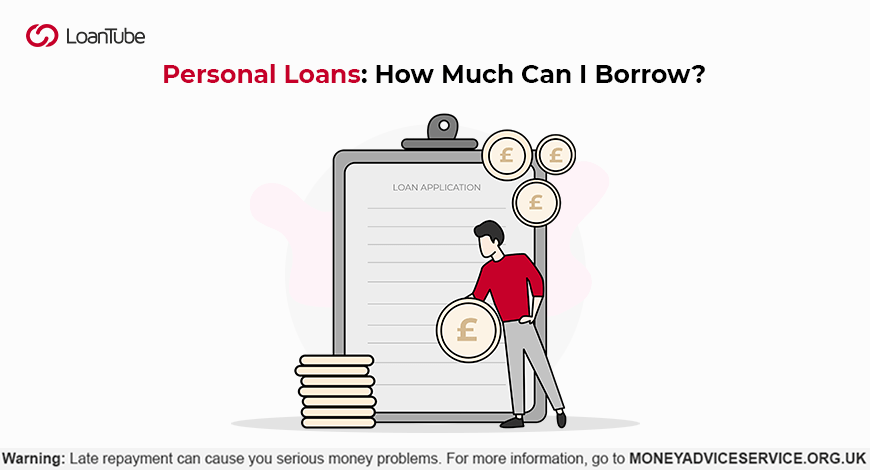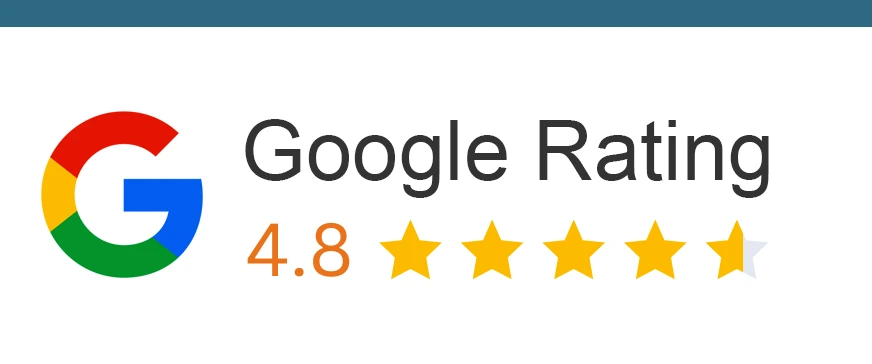Unsecured personal loans don’t require collateral security. But how much can you borrow with this financial product? Learn more about some tips to help you maximize your borrowing.
Unsecured personal loans allow you to borrow money without declaring collateral, such as a house or car, to secure the loan. Lenders majorly focus on your financial standing – credit history, income and outstanding debt, to make their decision.
Unlike secured loans, wherein you’ve to declare collateral to get the loan, the lender can’t repossess your assets in case of a default. However, if you fail to repay an unsecured personal loan, the lender is within their rights to take legal action against you. It may be in the form of a lawsuit, landing you a County Court Judgment (CCJ), both of which will gravely impact your credit score.
You can use the proceeds from the loan at your discretion. Ideally, though, you should use an unsecured personal loan responsibly so that it doesn’t turn into unmanaged debt. For this, it is imperative to understand if your fund requirement aligns with your affordability.
If you’re looking to borrow an unsecured personal loan, read on to find out how these loans work and how much you can borrow.
Maximise your options: Compare and apply for loans below with LoanTube
Apply Filters
How do unsecured personal loans work?
As mentioned previously, unsecured personal loans don’t require collateral, so the process of getting one is pretty straightforward. Start by crunching some number to conclude a loan amount that you’ll borrow. Now, pan out a repayment plan for your loan.
Unsecured personal loans let you borrow money in a lump sum. While each lender has specific limits set for the minimum and maximum amount, you can usually borrow between £1,000 and £35,000. Now when your repayment period begins, you’ll have to repay the loan over monthly instalments, inclusive of interest.
The interest on unsecured personal loans generally ranges between 6% and 36%. However, the interest that a lender sets largely depends on your credit rating and affordability. You may qualify for competitive interest rates with a good credit score.
A smart way to borrow money is to shop around for loan offers before finalizing one. Instead of being laser-focused on comparing interest rates, try comparing the loans based on their APRs. APR or Annual Percentage Rate represents the overall cost of your loan, including the origination fees, brokerage fee, etc. Now, you may see a loan offer with low-interest rates but a higher APR. So, APR comparison will help you make a better-informed decision. Some lenders also levy a fee on late repayments, early settlement or unsuccessful payments. Watch out for such clauses in your loan agreement and decide accordingly.
Most lenders report your monthly repayments to credit bureaus. Thus, timely repayments will give your credit score a boost. Late repayments, on the contrary, can hurt your credit score and may land you a CCJ.
What can I use an unsecured personal loan for?
From financing your home improvement project to a new vehicle, you can use an unsecured personal loan to bridge most of your financial gaps. Broadly, you can use one to either improve your financial health, to fund discretionary expenses or to cover unprecedented events. Take a look below:
- To improve financial health: Unsecured personal loans taken out to pay down your debt, or build an asset, can aid in improving your financial health. A home improvement loan, for instance, can help you refurbish your property to increase its market value. A debt consolidation loan, on the other hand, can help you organize your debts. Using a loan responsibly will benefit you in the long run. Whatever your reason may be, LoanTube can help you find an unsecured personal loan to suit your needs. Visit us to compare rate-locked loans from multiple lenders, at the click of a button!
Find Your Ideal Loan with Real Interest Rates
- To fund discretionary expenses: Tapping into your savings for an expensive purchase is not a wise financial move. Instead, you can spread the cost across a period, over fixed monthly instalments with an unsecured personal loan. Furthermore, using a credit card to finance expensive purchases may be costlier than using a personal loan. But be sure to compare all your options.
- To cover unplanned costs: An unplanned emergency may knock your door any time. If you’ve got a medical bill or a car repair bill to tend to urgently, you may opt for a personal loan to cover the costs. Not all of us have credit cards, or you might not want to exceed the limit or go into overdraft. In such a dire case, a personal loan may come in handy.
How much can I borrow with an unsecured personal loan?
Unsecured personal loans aren’t backed by collateral, which makes them riskier in a lender’s perspective. That’s because lenders can’t rely on much to recover their losses in case of a default. Subsequently, lenders often cap the maximum amount of money they can lend.
While each lender has their specific caps, the loan amount for an unsecured personal loan ranges between £1,000 and £35,000. Some financial institutions with the required resources may lend more than this. But more often than not, these are banks lending unsecured personal loans to age-old customers.
Even if you stay within the lender’s generic limit, the maximum amount you qualify for also depends on you. In the case of unsecured personal loans, lenders would most likely base their decision on your creditworthiness and affordability. Your credit rating, income stability and employment history, determine these attributes. As long as you fulfil these pre-requisites, you might qualify for competitive rates and a substantial loan amount.
In simple terms, even if a lender caps the maximum lending amount at £35000, you may not be able to qualify for it. The lender may only lend you a bigger lump sum if you’ve demonstrated responsible credit behaviour in the past and prove that you can afford to repay the amount. To assess the risk, the lender might want to know the purpose of your loan. While most lenders don’t pay head to how you’ll use the money, some lenders lending larger loan amounts tend to prohibit you from spending on certain things. For instance, if you’re borrowing £45000 to spend on your business, the lender may be apprehensive. In such cases, a self-assessment before filing the loan application can be helpful.
Tips to qualify for as much as possible
When your application makes a strong case, you may find lenders who lend larger loan amounts easily. However, before starting your hunt for the most suitable loan offer, check if you can afford the loan. Even though unsecured personal loans aren’t a threat to your property, missing repayments still have consequences. Defaults can gravely affect your credit score.
Once you’ve assessed your affordability, here are some steps you can take to boost your chances of success:
- Try and apply for a loan when you’re employed, with a stable income.
- Ensure that you register yourself on the electoral roll.
- Work on reducing your debt-to-income ratio to qualify for competitive rates and larger loan amounts.
- Use credit responsibly. Watch out for signs of a debt problem. The sooner you diagnose it, the better.
- Repay all your existing bills on time. All your repayments contribute towards building your credit score. You should also examine your credit report before applying for a loan. If you spot any erroneous entries, get them rectified to boost your score.
Conclusion
Unsecured personal loans can bridge the gap between your dreams and their fulfilment. Once you get your desired loan, ensure that you make timely repayments. Unsecured personal loans don’t pose a threat to your property or assets, but defaults can be detrimental to your credit score, and overall financial report.


